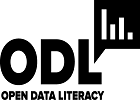Projects by Faculty Member: Nic Weber
This project is conceptualizing a US Research Software Sustainability Institute that will validate and address various classes of concerns impacting all software development and maintenance projects across all of NSF. URSSI conceptualization includes workshops and a widely-distributed survey that will engage important stakeholder communities to learn about the software they produce and use, and the ways they contemplate sustaining it, following the paths blazed by other successful software institutes. The workshops, survey, and community management approach allow the conceptualization project to iteratively build on existing, extensive understanding of the challenges for sustainable software and its developers. The project also addresses how URSSI could formalize, diversify, and improve the pipeline under which students enter universities, learn about and contribute to software, then graduate to full-time positions where they make use of their software skills, to increase the diversity of those entering research software development and to retain diversity over their university careers.
The Qualitative Data Repository and Hypothesis (https://hypothes.is/) have partnered to develop a new approach to achieving transparency in qualitative and multi-method research: Annotation for Transparent Inquiry (ATI). ATI builds on “active citation,” an earlier approach pioneered by Andrew Moravcsik. Using ATI empowers social scientists to develop “data supplements” that can be linked directly to digital publications on multiple platforms. An ATI Data Supplement includes two sections: a “Data Overview” and a set of digital annotations (potentially linked to underlying data sources). The annotations elucidate the data and analysis on which the publication is based. ATI employs “open annotation,” which allows for the generation, sharing, and discovery of digital annotations across the web (Sanderson et al. 2017).
The Qualitative Data Repository (QDR) curates, stores, preserves, publishes, and enables the download of digital data generated through qualitative and multi-method research in the social sciences. The repository develops and disseminates guidance for managing, sharing, citing, and reusing qualitative data, and contributes to the generation of common standards for doing so. QDR’s overarching goals are to make sharing qualitative data customary in the social sciences, to broaden access to social science data, and to strengthen qualitative and multi-method research.
Weber is the Technical Director of QDR.

Open Data Literacy is improving accessibility and use of open data through partnerships with public sector institutions. Action research projects are helping organizations make their data open and usable by the public. New curriculum and outreach are preparing information professionals to lead open data initiatives. (http://odl.ischool.uw.edu/)
ODL is funded by a grant from the Institute of Museum and Library Services, Laura Bush 21st Century Librarians Program. Grant number: 67-5285.
